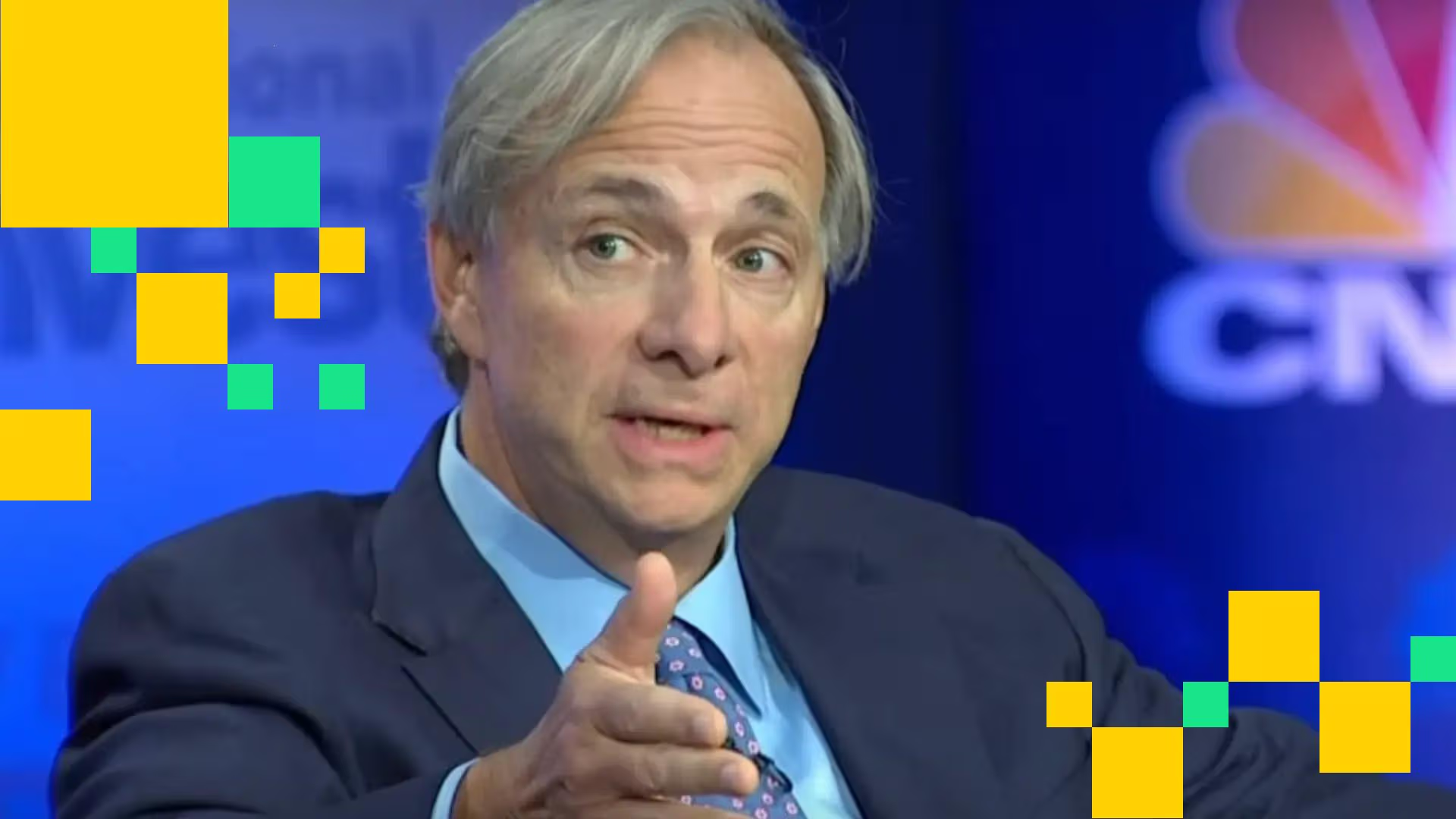
DAO (decentralized autonomous organization) is an organizational structure that operates autonomously through a set of public rules, enabling democratic decision-making without centralized intervention or management. As one of the most influential DAOs in the Chinese-speaking community, SeeDAO aims to become a digital city-state connecting one million Chinese people. SeeDAO is committed to facilitating the connection, flow, exchange, and freedom of community members, fostering the establishment of bridges for information exchange between China and the rest of the world. It aims to help individuals explore new educational, collaborative, and work methods in the Web3 era, and assist in building new social networks in an atomized society.
The above introduction can be found on the official website of SeeDAO. The vision is grand, but how has SeeDAO achieved its ideals? What is its current status? Today, we have invited Baiyu, the founder of SeeDAO, for an interview to shed light on these questions.

Q: Please provide a brief introduction to SeeDAO.
Baiyu: The main goal of SeeDAO is to help more Web 2 individuals enter the Web 3 space and contribute to its development after gaining knowledge about Web 3. In the past year, SeeDAO has become an important entry point for the Chinese-speaking world to enter Web3. We have collaborated on the translation of four to five hundred articles, and our translation guild has become the largest Web3 translation organization in the Chinese-speaking community. SeeDAO has also initiated over 100 online and offline activities.
SeeDAO has also achieved some incubation success, mainly in the form of DAO Tools. Due to SeeDAO's rich experience in DAO practices, we know exactly what is needed for DAO development, and the community funds provide support for incubating projects. SeeDAO's seed round financing valued the organization at $30 million, and all the funds raised have entered the SeeDAO treasury. So, compared to other DAOs in China, SeeDAO has less financial pressure, but we are still relatively poor compared to overseas DAOs.
Each stage of SeeDAO has specific goals. The current stage focuses on automation. As we aim for pure decentralized governance, we have dissolved the company and transferred all the funds to the community multisig treasury.
Q: Why start with incubation tools?
Baiyu: In the process of practicing decentralized governance, we realized that new collaboration requires new tools. Without these tools, it is challenging to achieve true decentralized management. SeeDAO is currently in an automation stage and needs to refine the scientific process of automated collaboration and develop corresponding tools that are also decentralized. For example, SeeDAO is organizing the development of a DAO operating system, which is planned to be launched by the end of May.
Q: If this stage is about automation, what comes next?
Baiyu: The next stage aims for gamification. We will turn automation into gamification, including game-like mechanisms, artistic packaging, worldviews, and visuals.
Q: Are you referring to gamifying SeeDAO?
Baiyu: Yes, the second season of SeeDAO Workshop, currently open for registration, focuses on gamification. This time, we are collaborating with professional partners such as Jiqiren Club and Independent Light to explore the gamification of DAO.
Q: What types of people make up the members of SeeDAO?
Baiyu: The majority of our members are Web 2 professionals, including product managers, developers, recent college graduates, or individuals with less than two years of work experience. The second group consists of Web 3 professionals who have recently joined the Web3 space.
Q: Can we say that the composition of SeeDAO members is not primarily builders, but more Web 2 or Web 2.5individuals seeking transformation or those interested in the Web 3 world who want to get involved? Is SeeDAO essentially an entry-level experience? Is there a threshold for joining SeeDAO? Is there a screening and auditing mechanism, or is it simply a matter of signing up?
Baiyu: Yes, that's correct. The majority of SeeDAO members are indeed newcomers to Web3, and we are willing to help them. However, most of our active contributors are experienced veterans with rich DAO experience. They have contributed to overseas DAOs or are Web3 OGs. SeeDAO is completely open. However, to truly join SeeDAO, one needs to complete an introductory video learning process within the community. The video covers SeeDAO's vision and rules. This process is automated, and after completing the learning, members receive on-chain SBT and automatically gain basic permissions on Discord and the forum. In other words, they become members. This is a basic screening process.
Q: Are there any criteria for core members?
Baiyu: No.
Baiyu: Core membership is also completely open. SeeDAO currently does not sell membership status. It primarily relies on a Proof of Work (PoW) mechanism and does not yet have Proof of Stake (PoS). By completing a certain amount of work tasks and contributions within SeeDAO, members earn points and eventually gain membership. SeeDAO adheres to its ideal of decentralization, even if it means dissolving the company. We will always insist on being completely open and rely on rules for the community to select capable individuals.
Q: Talk about SeeDAO's unique label: education.

Baiyu: Firstly, SeeDAO emphasizes the independence of individual members. There is no one-on-one service, and we never engage in user growth marketing internally.
However, after joining SeeDAO, members have access to Web3 University. The introductory course at Web3 University is organized by SeeDAO members voluntarily, with some acting as teaching assistants and others as lecturers. The course is freely available to SeeDAO members, and upon completing this introductory learning, members receive SBT, which marks the beginning of their journey.
Furthermore, there are various education guilds within SeeDAO that offer skill-based courses.
Q: How is the funding from the SeeDAO treasury allocated?
Baiyu: At the time, $500,000 out of the $1.3 million in funding was separately allocated to SeeDAO's strategic incubation fund called the TAO Fund. SeeDAO does not engage in financial investments. The incubation fund primarily focuses on building infrastructure based on the needs of SeeDAO's digital citadel. Additionally, community members can apply for funding from the treasury (the remaining $800,000) for their projects. Regarding the community treasury, SeeDAO has a two-year financial plan. SeeDAO has an institution called the City Hall, and public positions within the City Hall, such as those responsible for branding, media, operations, and event planning, are elected and rotated every three months through community elections. These public positions receive some subsidies, and most members are not full-time. Although part-time, the income is decent compared to Web2 standards. If you hold two part-time public positions within SeeDAO, it should be equivalent to a well-paying full-time job. The income from these positions can sustain you.
Q: Regarding the outcomes incubated by SeeDAO itself, if they generate profits, does SeeDAO receive a share? What is the approximate ratio?
Baiyu: The profit-sharing ratio of incubated projects depends on the negotiations with the incubator itself. First and foremost, it is important to clarify that SeeDAO, as a collective, does not engage in projects. Its focus is to serve the community and create an environment that encourages members to create. If a community member wants to start a project, they need to form their own team or join an existing team. SeeDAO can provide some initial funding support and leverage the community's human and brand resources. If a project performs well and has commercial potential, then the incubator will support it, typically providing around 50,000 U.S. dollars. After the project releases its token, 5% to 10% of the tokens will be returned to the SeeDAO incubator. Out of these, the incubator pays the salaries of four full-time employees, and the remaining amount goes into the SeeDAO treasury, approximately 80%.
Web3 University is even more interesting. There is no company or entity. The income from each course is automatically distributed through smart contracts, with 7% going to the SeeDAO treasury. This model is more like "taxation" and may become SeeDAO's primary source of income in the future.
So, it really depends on the specific circumstances.
Q: City Hall holds elections every three months, what about the incubator? Are there regular elections as well? Are both of them equally weighted?
Baiyu: The incubator and City Hall are parallel entities. The incubator functions as a special project team, and its term will end in 2024. City Hall mainly focuses on internal governance and external influence.
Q: What are the most frequently used tools within SeeDAO? Have you tried using Web3 tools?
Baiyu: The most commonly used tools are centralized tools like Discord and Notion. Of course, we hope to have mature Web3 tools, but the level of collaboration within DAOs is not yet capable of incubating complex, large-scale projects.
The collaboration challenges of DAOs cannot be solved by tools alone at this stage. We need a completely new governance and collaboration process before exploring supporting tools. Although there are many tools available, most of them are not practical, and the people developing these tools are unaware of the actual needs.
Q: What will SeeDAO look like in 5 years?
Baiyu: In my opinion, in 5 to 7 years, SeeDAO will truly become a digital city-state. A digital city-state is primarily a cloud-based community with a unified identity, such as SGN identity or even a digital passport, recognized tokens, shared values, and a sense of connection, flow, exchange, and freedom. Additionally, I hope SeeDAO will extend offline, with members present in different cities worldwide, allowing us to find our community wherever we go through the SeeDAO network.
We have always had a decentralized roadmap, starting from a centralized initiation, transitioning to semi-centralized community operations, and ultimately dissolving the company for completely community-based operations. As you have already noticed, the incubator still has a slight trace of centralization, but it will likely operate in a completely decentralized manner after the current term ends. City Hall is also exploring how to provide efficient services under decentralized mechanisms.
Q: What factors do you think contribute to the success of SeeDAO?
Baiyu: In terms of the current era, even without SeeDAO, there would certainly be other successful DAOs.
At this stage, people are becoming more pragmatic and focused on output. We need to rely more on transparent tools and rules to prevent corruption. Overall, good community governance is about finding a balance between "code is law" and "people-centered" approaches, meaning finding a balance between human judgment and code-based decision-making. When we find a good balance, DAOs will explode on a large scale. Transparency is the most important aspect in this process.
Q: How much influence do you personally have on DAOs?
Baiyu: I have already felt that my influence is diminishing. I may always be part of SeeDAO, but eventually, I will become an ordinary member. This is also where my ideals lie.






All Comments